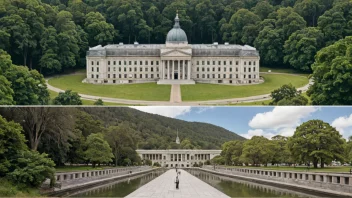Cultural heritage plays a crucial role in shaping the policies that govern societies around the world. It encompasses the traditions, values, and historical narratives that define a community's identity. As globalization continues to influence local cultures, understanding the impact of cultural heritage on policy-making is more important than ever.
One of the primary ways cultural heritage influences policy is through the preservation of local customs and practices. Policymakers often draw upon the cultural narratives that resonate with their constituents. For example, in regions with rich indigenous histories, policies that promote the preservation of indigenous languages and traditions can foster community cohesion and pride. This not only helps maintain cultural diversity but also empowers local populations to participate in the governance process.
Moreover, cultural heritage can guide environmental policy. Many cultures have a deep-rooted connection to their land and resources, which can inform sustainable practices. For instance, traditional agricultural methods that have been passed down through generations often promote biodiversity and environmental stewardship. Policymakers who acknowledge and integrate these practices can create more effective environmental regulations that resonate with local communities.
In the realm of urban development, cultural heritage can serve as a blueprint for creating spaces that reflect the identity of a community. Policies that prioritize the preservation of historical sites and local architecture not only enhance a city's aesthetic but also boost tourism and local economies. Cities that embrace their cultural heritage often find that residents take greater pride in their community, leading to increased civic engagement.
However, the integration of cultural heritage into policy-making is not without challenges. Conflicts can arise when there is a clash between modern development and the preservation of cultural sites. Policymakers must navigate these tensions carefully, ensuring that the voices of local communities are heard in the decision-making process. Engaging stakeholders through public consultations and collaborative planning can help bridge the gap between competing interests.
Additionally, policymakers must be aware of the risks of cultural appropriation, where elements of a culture are used without understanding or respecting their significance. This can lead to the commodification of cultural heritage, undermining its value and meaning. Therefore, it is essential for policymakers to approach cultural heritage with sensitivity and respect, ensuring that the communities from which these traditions originate are involved in their representation and use.
In conclusion, cultural heritage significantly influences policy-making by shaping local identities, guiding environmental practices, and informing urban development. As societies continue to evolve, recognizing and valuing cultural heritage in policy decisions can lead to more inclusive and effective governance. Policymakers who prioritize cultural heritage not only honor the past but also pave the way for a more sustainable and equitable future.






